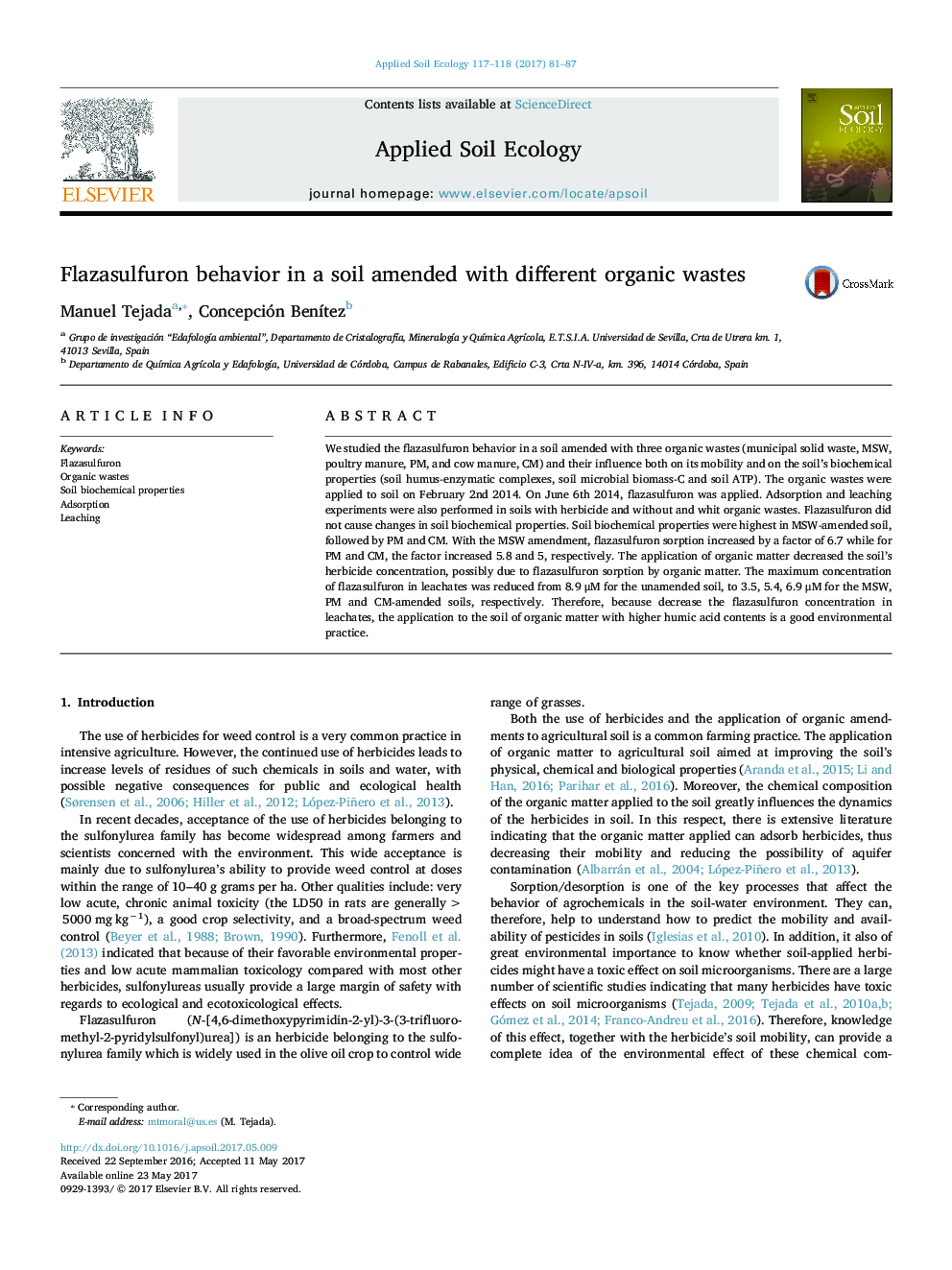| Article ID | Journal | Published Year | Pages | File Type |
|---|---|---|---|---|
| 5742665 | Applied Soil Ecology | 2017 | 7 Pages |
â¢Flazasulfuron did not affect the soil biochemical properties.â¢Degradation flazasulfuron on soil might depend on processes of chemical hydrolysis.â¢Organic matter with higher humic acid contents adsorb highest flazasulfuron concentration.
We studied the flazasulfuron behavior in a soil amended with three organic wastes (municipal solid waste, MSW, poultry manure, PM, and cow manure, CM) and their influence both on its mobility and on the soil's biochemical properties (soil humus-enzymatic complexes, soil microbial biomass-C and soil ATP). The organic wastes were applied to soil on February 2nd 2014. On June 6th 2014, flazasulfuron was applied. Adsorption and leaching experiments were also performed in soils with herbicide and without and whit organic wastes. Flazasulfuron did not cause changes in soil biochemical properties. Soil biochemical properties were highest in MSW-amended soil, followed by PM and CM. With the MSW amendment, flazasulfuron sorption increased by a factor of 6.7 while for PM and CM, the factor increased 5.8 and 5, respectively. The application of organic matter decreased the soil's herbicide concentration, possibly due to flazasulfuron sorption by organic matter. The maximum concentration of flazasulfuron in leachates was reduced from 8.9 μM for the unamended soil, to 3.5, 5.4, 6.9 μM for the MSW, PM and CM-amended soils, respectively. Therefore, because decrease the flazasulfuron concentration in leachates, the application to the soil of organic matter with higher humic acid contents is a good environmental practice.
